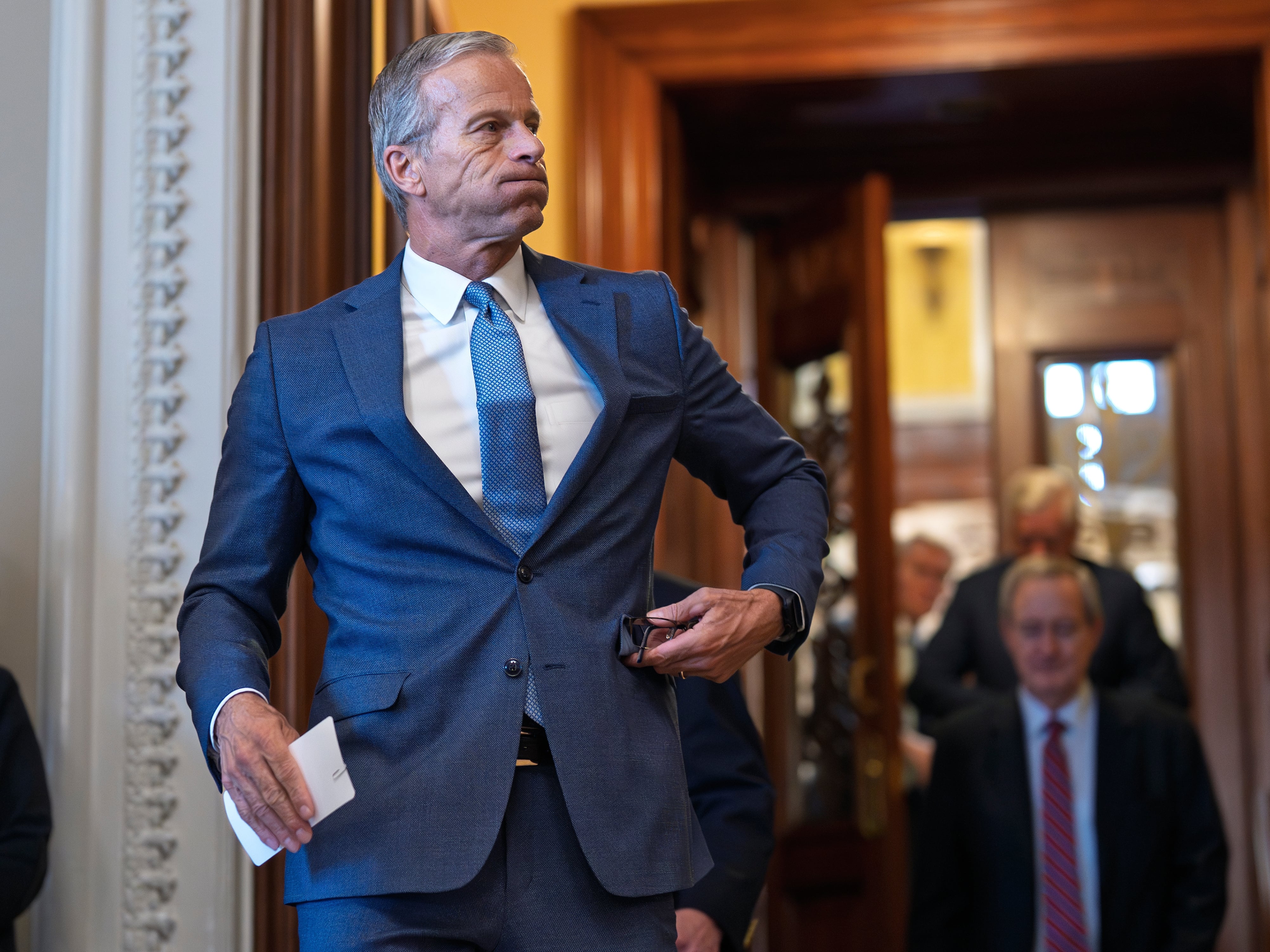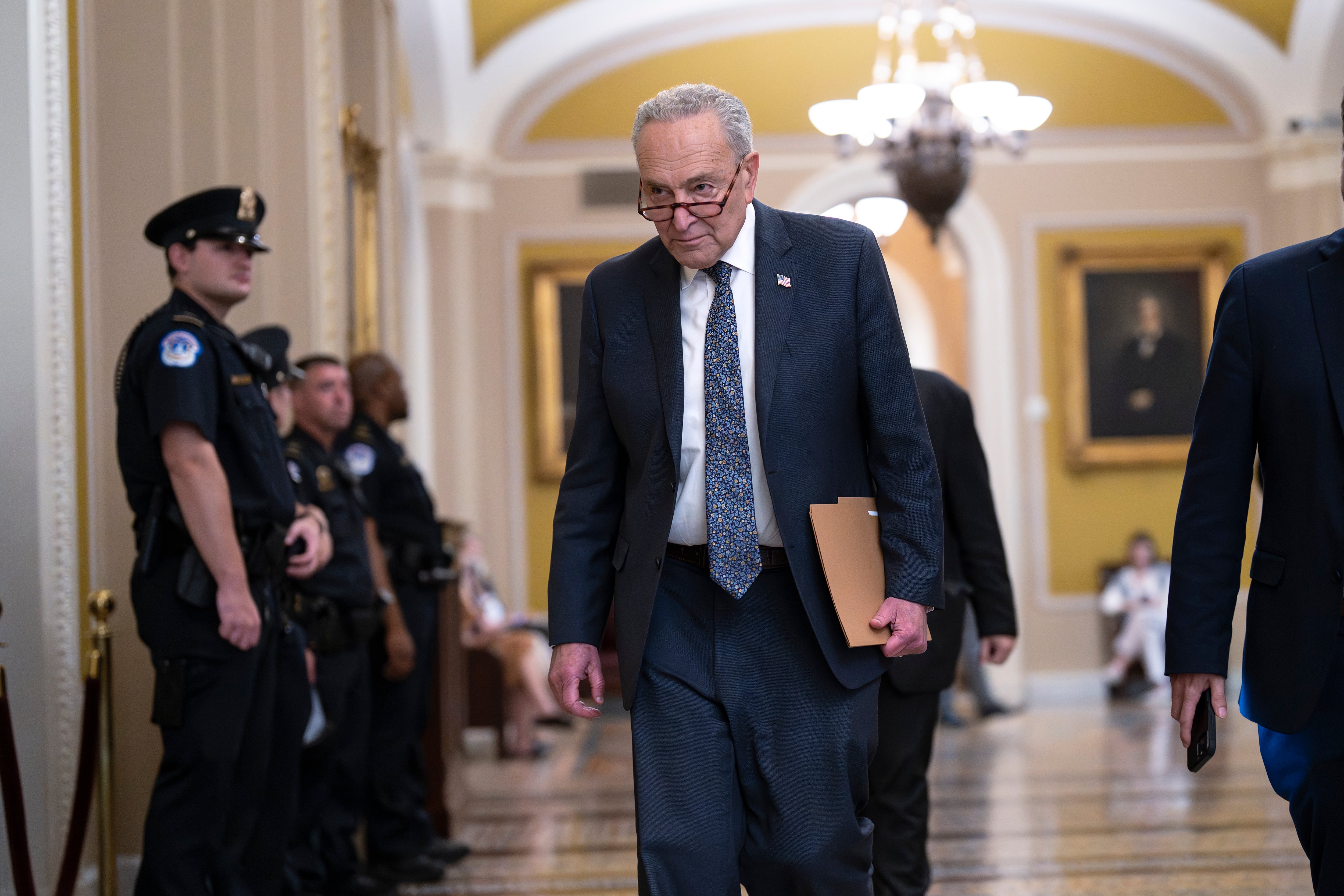

Published on: 07/01/2025
This news was posted by Oregon Today News
Description
President Donald Trump’s budget bill has taken another step towards becoming law. Republicans in the U.S. Senate pushed through the passage of the bill early on Tuesday.
The bill, which includes sweeping changes to Medicaid and other entitlement programs, is estimated to add more than $3 trillion to the national debt, according to an estimate from the Congressional Budget Office. The bill’s language went through a flurry of changes after reaching the Senate, with several being implemented during the marathon hours of debate before the final vote. The bill passed largely along party lines, with Vice President JD Vance casting the tie-breaking vote after three Republicans broke with their party to oppose the bill.

OPB health reporter Amelia Templeton spoke with Oregon Sen. Jeff Merkley shortly after the bill passed. He called the final vote, which came after hours of debate, “extraordinarily painful” and said the process of crafting the final bill was “the most chaotic legislative process” he’s ever seen.
These highlights from the conversation have been edited for clarity and length.
How the Senate’s bill would impact Oregon’s Medicaid recipients
Amelia Templeton: The Senate version of this bill cuts Medicaid more deeply than the version passed by the House. Walk me through what the Senate bill would mean for people on the Oregon Health Plan.
U.S. Sen. Jeff Merkley: Essentially, it proceeds to have a big impact on the ability of states to provide the matching funds for Medicaid. Therefore the Oregon Health Plan – our Medicaid plan – may shrink.
But also, and very importantly, it takes the entry gate to the Oregon Health Plan and wraps it in red tape. So you have to reapply, reapply, reapply, to re-certify your income. Here’s the challenge: we know that such provisions, which are put forward in what sounds like lofty, that ‘able-bodied people should work if they’re receiving Medicaid.’ But we know what it does is actually trap people in illness because if you don’t have health care, you can’t get well. If you can’t get well, you can’t work.
And furthermore, every developed society thinks of health care as a right and they know that if you help people get healthy, they want to work and you have a win-win. So this is a lose-lose proposition for people on the Oregon Health Plan.
On the unclear future for food assistance benefits and other impacts
Templeton: What else do you think will have a particular impact in Oregon and Southwest Washington?
Merkley: For sure the cut in the nutrition program, that’s the SNAP program, but through a bizarre twist, Oregon ended up in a much better place than we expected.
The bizarre twist is that in order to get the vote from Alaska Sen. Lisa Murkowski, they had to find some way to put Alaska in a special class. They said, ‘Here’s the thing, the error rate in Alaska is extraordinarily high about whether they are accurately reflecting the income of people who applied for SNAP. And so we will say states that have a very high error rate, get a special exemption to not have to do a state match.’ That was thrown out as an earmark for Alaska.
So they came back and said, ‘Well, let’s include a few other states that have high rates.’ In fact, 10 of the 50 states, and Oregon’s one of the top 10. Therefore Oregon now will not be affected by having to do a state match until probably 2029.
But here’s the twist, it will be based on the error rate in 2025. We don’t know how that will come out. If our error rate improves, we will not get this special exemption and we would fall into a category where we would have to provide a 15% state match for a program there’s never been a state match for. In real numbers, that’s about half a billion dollars the state would have to come up with for basically the 2028 biennium through 2030. That would be an enormous hit to the state and it means other things wouldn’t get funded.
Templeton: That’s something that will depend on, I assume, both if these provisions in the bill make it through to the final version of the bill once it’s reconciled with the House. So still incredibly uncertain it sounds like when it comes to SNAP.
Merkley: That’s right. It’s a bizarre thing because it’s an incentive to increase your error rate. So maybe the state goes massively into work right now to basically make a huge number of mistakes on signing people up in the last few months of fiscal year 2025, which ends on September 30, in order to make sure we don’t end up with a half billion dollar hit. This is a terrible idea. The policy makes no sense, done simply to get the support of the senator from Alaska by having a special deal for that state. But then they had to include some others as well.
By the way, when you ask me about other provisions, I just want to mention it’s a huge hit on renewable energy provisions of all kinds, from utility scale to rooftop solar to electric cars, charging stations, just all kinds of things related to renewable energy. This is a massive victory for the climate overheating fossil fuel world and a huge, devastating hit to cheaper, cleaner, non-climate heating, renewable energy. So that’s big for the world. It’s big for our state.

On last-minute changes to the bill
Templeton: There was a provision that was added in the Senate to try to address fears that some of the reduction in federal funding for Medicaid was going to put rural hospitals out of business. Where does that sit?
Merkley: Yes. So there was a fund put into the bill for rural hospitals, but then at the last second, in handwriting, Republicans submitted the paperwork with written in new versions of how the fund would be controlled and appeared to turn it into a slush fund where Trump could simply reward the states that needed the biggest boost to make sure that the senators voted for the bill. We challenged that rewritten, handwritten language and it took about half an hour at the desk in the middle of the Senate chamber – with the staff leaning over the desk and the parliamentarian leaning over the counter – and ultimately we won in that handwritten section was bounced out, but that was the bill was changing to the last second before the final votes.
Templeton: We’ve talked a bit about the details of the bill and you’ve said there are some things you’re not even 100% clear on what made it into the final. Why is that? Why is it so hard to know what’s in it?
Merkley: So we had several hundred policy provisions that had been put in by the House or put in by the Senate behind the scenes before they brought their substitute amendment forward. Those policy provisions are generally not supposed to be in a reconciliation bill. And so we submitted them to the parliamentarian – and that’s a couple hundred provisions – and those were often knocked out. And then the Republicans would rewrite them to try to meet the reasons the parliamentarian objected to them being inappropriate. And in some cases, we went through three or four rounds of this, and all of that was happening on multiple sections of the bill, basically overlapping with teams running into the parliamentarian and running out and new versions. And because it was hundreds of provisions being wrestled with, and new versions continuously being rolled out, it just creates an enormous amount of confusion about the details. This is a thousand page bill or nearly. It’s well over 900 pages.
Templeton: These new provisions, is this happening on people’s laptops? Is this happening by hand? How does this actually work?
Merkley: This is not happening on people’s laptops, it’s happening on paper. Maybe somebody had the electronic versions, but essentially the folks who were getting it were the staff of the relevant committee who would then read through it and then mark things that needed to be challenged.
And we’re talking about several days of this process before we were actually on the floor, and then continuing on through the entire 27 hours we were on the floor. So it’s not like we had a bill that was a set deal when we started voting on amendments, it was continuously changing as we were there, with new sections being rewritten and submitted and then reassembled.
This was the most chaotic legislative process I’ve ever seen. It was driven in this chaotic fashion because of the complexity of the innumerable policy provisions that Republicans were trying to put in the bill, and by the deadline the president had created.
On how the bill would impact the deficit
Templeton: One aspect of this bill that confuses me as a health reporter, but that I know is important in the bigger debate, is the dispute over how much it adds to the deficit. You have said that your Republican colleagues are being dishonest, essentially using tricky math when it comes to the cost of this bill. And I’m wondering if you can explain that.
Merkley: It comes down to this: the current law passed in 2017 has a number of tax breaks that are expiring, and the Republicans have said, ‘We’re going to assume those don’t expire and therefore extending the tax breaks costs nothing.’ Of course, the law says they’ll expire, so if they don’t pass this bill, they would expire. And there’s a huge difference between having these tax breaks and not having these tax breaks. But under the Republican accounting, they cost zero.

Next steps for the bill
Templeton: The Senate has passed its version of this bill now, the House version passed in May. What happens next?
Merkley: The House is meeting and they will attempt to pass the Senate bill as it is. If the House passes a bill, it will go to the Oval Office and the president will sign it by July 4, as he wanted it.
If the House rebels – and they only have about three votes to spare on the Republican side – then who knows? Does the House keep working on it for a week? Does the House and Senate have a kind of a behind the scenes conference and bring back a new version of the bill to both chambers when we return after July 4? But the whole goal of the president and the Republican party is to pass the bill in the House Wednesday.
I’m really hoping that the House says ‘no’ tomorrow and that we have another shot at this, because there may be senators who go home over the July 4 break and will have a chance to reflect on what they’re doing to families across America and take feedback from families and maybe come back and go, ‘Yeah, this is really a mistake.’ So we’ve lost the vote today, but we are not giving up the fight for a better vision of families thriving and billionaires paying their fair share.
News Source : https://www.opb.org/article/2025/07/01/trump-big-beautigul-bill-passes-senate-oregon-merkley-reacts/
Other Related News
07/02/2025
The 24-year-old man identified only as Y-Z-L-H had been detained June 5 just after his cou...
07/02/2025
Oregons Plastic Pollution and Recycling Modernization Act has officially come into effect ...
07/02/2025
SEIU represents half of the Oregon Department of Transportations nearly 5000 employees
07/02/2025
The amount of time that I have wasted trying to get people to either spell or say my name ...
07/01/2025











